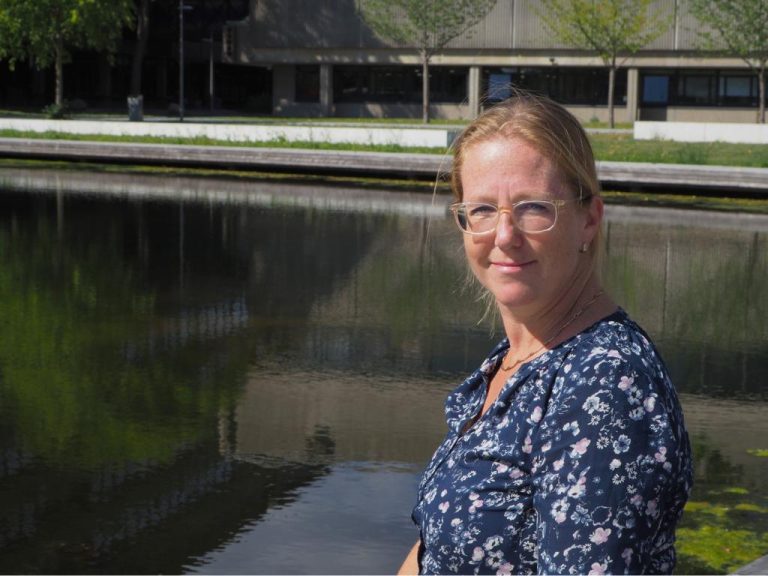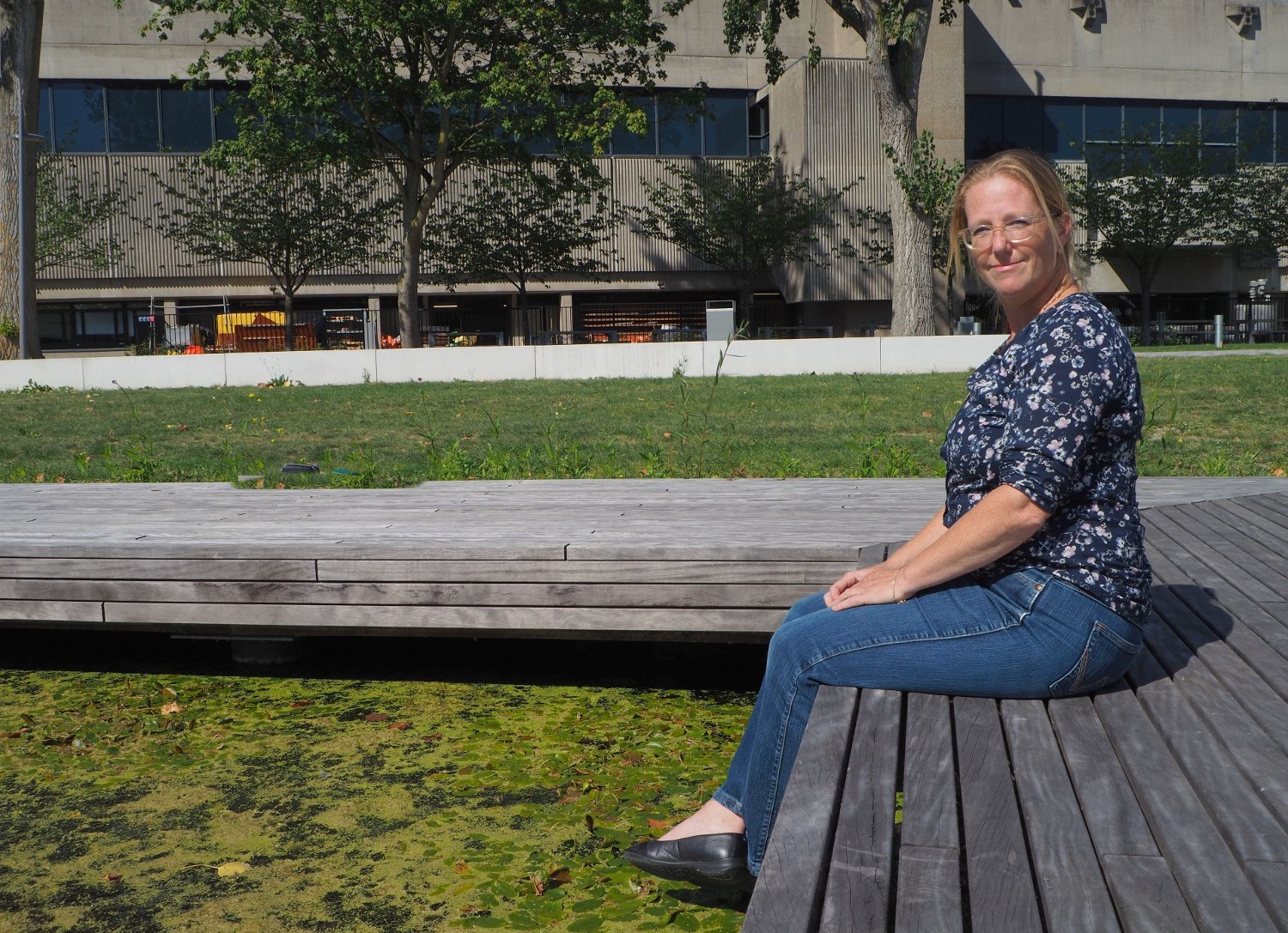This year, at least 50 students chose the master’s Environmental Engineering programme at the CEG Faculty. Professor Merle de Kreuk talks about the how and why.
Last summer, programme leader Merle de Kreuk saw that 'her' new master's is badly needed. (Photo: Jos Wassink)
“This summer is a fantastic example of why this programme is so badly needed,” says Professor Merle de Kreuk. Delta talks to her in the Civil Engineering building on one of the last summer days. The grass in the Mekel Park is parched and dry. De Kreuk and her Faculty colleagues have worked on developing the new master’s programme on Environmental Engineering at the Faculty of Civil Engineering and Geosciences (CEG) for the past two years.
“This summer we saw drought, poor air quality caused by forest fires, smog in the city, heat islands, and the need to reuse water. These are all themes that recur in Environmental Engineering. It would actually be crazy if TU Delft did not offer a programme that trains the engineers of the future to deal with all these subjects.”
What is Environmental Engineering about?
“Wherever people live and work, they affect the environment. Within our programme, engineers learn to devise and develop techniques to minimise that impact. Examples are water technology, waste separation and waste recycling. We have to keep our cities liveable despite the fact that we all live in high densities, release pollution into the air and water, and produce a lot of waste. The course mainly focuses on the urban environment. That is a big difference with other environmental studies in the Netherlands, such as environmental sciences or future planet studies. We really focus on the engineering, so on the technology development.”
Environmental engineering seems to be part of the greening of the Faculty of CEG. Is that right?
“I think sustainability and the realisation that we have to be more careful with our materials and with the planet has reached everyone at TU Delft, including our Faculty. Sustainability is being further integrated into every study programme and it is also everyone’s task to do so. Our students are also demanding it. Students are extremely aware of the need to become more sustainable. So the study programmes must also pay attention to this. Of course we still need raw materials for the energy transition and to be able to continue living as we do. But make sure that you reuse those raw materials as much as possible and if you really have to extract something from the ground, do it as sustainably as possible without all the pollution.”
Does the course consist of a new combination of old subjects?
“No, it is all new material. Of course things are reused. But the whole education system has changed – we went from separate subjects to larger modules and applied a lot more project teaching and self-study. We are moving away from the traditional lecture format. As a result, a lot of material needs to be developed. Everyone is working hard on this now. We will continue to develop, and this year we will find out what works and what doesn’t. We will ask our first batch of students for feedback. We did this for the Environmental Engineering track and it worked very well.”
Where do Environmental Engineering graduates end up?
“In a wide range of recycling companies, water boards, drinking water companies, local and national governments, and as far as air quality is concerned, the KNMI (Royal Netherlands Meteorological Institute) and RIVM (National Institute for Public Health and the Environment). We have a committee comprising a wide variety of representatives from organisations such as Deltares, TNO, RIVM, a drinking water company, a water board, two engineering firms and recycling companies, that looked at the study design. They all said ‘Yes, this is the job of the future and we will need one to 10 people with that profile in the coming years’.”


Merle de Kreuk: “We will continue to develop and this year we will find out what works and what doesn’t.” (Photo: Jos Wassink)
More information:
- Tracks & Masters – Environmental Engineering is now one of the master programmes at the CEG Faculty, alongside Civil Engineering, Applied Earth Sciences, three interfaculty masters and a joint master’s programme. Before, it was one of the seven master’s tracks within the master’s programme in Civil Engineering. The master programme in Environmental Engineering itself has three tracks: air, water and waste & resources.
- Who is who? – Professor Merle de Kreuk led the setting up of the new master’s in Environmental Engineering and normally would become the first Programme Director. However, as De Kreuk has been appointed as Chair of the Department of Water Management as of 1 September 2022, Dr Maurits Ertsen will take over as the new Programme Director. The overarching Director of Education at the CEG Faculty is Hans Welleman.
- Overview – check the webpage of the Environmental Engineering master’s programme.
- Admission requirements – Students with a bachelor’s degree containing sufficient mathematics, chemistry and physics can enter directly. Others can do a transition year to come up to speed. More information on the webpage of the programme.
Do you have a question or comment about this article?
j.w.wassink@tudelft.nl


Comments are closed.